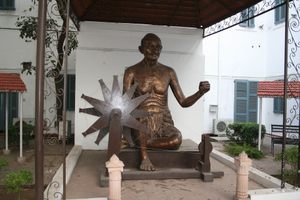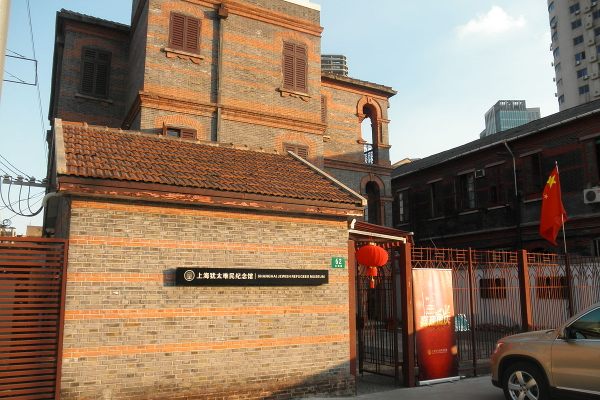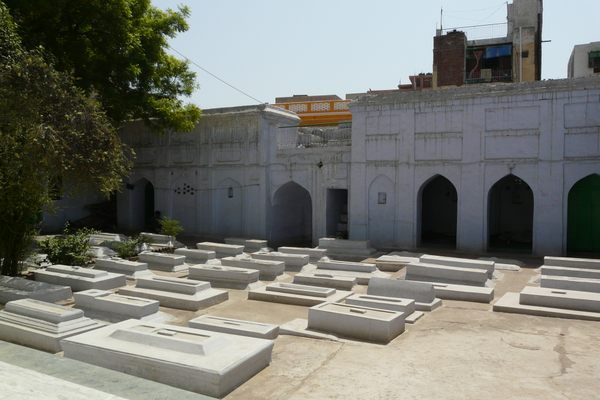About
Judah Hyam Synagogue is the principal place of worship for New Delhi’s tiny Jewish community and the only one of its kind. Named after a distinguished civic and religious leader from Pune, the synagogue was established in 1956 as a prayer hall and a community center for the Jews of Delhi. It has since then played host to a number of illustrious visitors such as the Israeli leader Shimon Peres and the Dalai Lama, among others.
An annex was later added to the main building for the dual purpose of serving as a library and an inter-faith study area. The Delhi Jewish cemetery, bordering the synagogue, is a verdant oasis of calm amidst the cacophony of Delhi’s notorious traffic. It is the final resting place of about 40 or so graves, some of which have turned into grass beds.
The Judah Hyam hall serves as the active locus of the Jewish community in Delhi, which currently includes a handful of Jewish Indian families still living in the city, Israeli diplomats and their families, expats, and tourists. Voluntary repatriation to Israel has been one of the main factors behind the steadily declining Jewish population in India, now numbered at a few thousand across the country. However, as the scholar Nathan Katz points out, the centuries-old history of Jews in India demonstrates how Jewish communities can flourish in an atmosphere of amity.
The pared-down aesthetic of the synagogue is distinctively different from the luxury retail stores, high-end hotels, and palatial homes of the urban elite that populate the area. In design, the building is spare and modern, a cream-colored façade engraved with the name of the synagogue and decorated with the metal grid of a series of Stars of David in blue. Austere in decor, the main prayer space is unique in that the bimah, the podium from which the rabbi reads out the sacred texts, is placed diagonally at the center of the room in alignment with the aron kodesh and the direction of Jerusalem.
Rabbi Malekar, who has conducted the prayer services for over 25 years and looks after the place, has been instrumental in inviting people of all faiths to the synagogue and educating them about Judaism in India. Though the drastic reduction in the Jewish population in India has led to the closure of a number of synagogues across the country, Judah Hyam bucks the trend. Setting aside the need for a minyan (a quorum of 10 Jewish males), Malekar conducts Friday Shabbat prayers as long as 10 people of the Jewish faith are present, regardless of their gender.
Historically speaking, the Jewish community has played a vital role in constituting the multicultural mosaic that is India. The synagogue of Delhi and its small group of congregants have continued to build on that tradition, through their indomitable will to not only survive but thrive.
Related Tags
Know Before You Go
Shabbat services at the Judah Hyam Synagogue are held on Fridays at 7 p.m. during the summer months and at 6:30 p.m. in winter. Services are conducted in both Hebrew and English.
Delhi and Rajasthan: Colors of India
Discover Colorful Rajasthan: From Delhi to Jaipur and Beyond.
Book NowCommunity Contributors
Added By
Published
May 20, 2019
Sources
- http://www.indianjews.org/en/research/jewish-sites-in-india/40-judah-hyam-hall
- Shalva Weil, ‘Indian Judaic Tradition’, Religions of South Asia: An Introduction, Routledge, 2006
- Muzeon Yisrael, The Jews of India: A Story of Three Communities, UPNE, 1995
- Nathan Katz, Who Are the Jews of India?, University of California Press, 2000
- https://scholarblogs.emory.edu/postcolonialstudies/2014/06/20/jews-in-india/






















